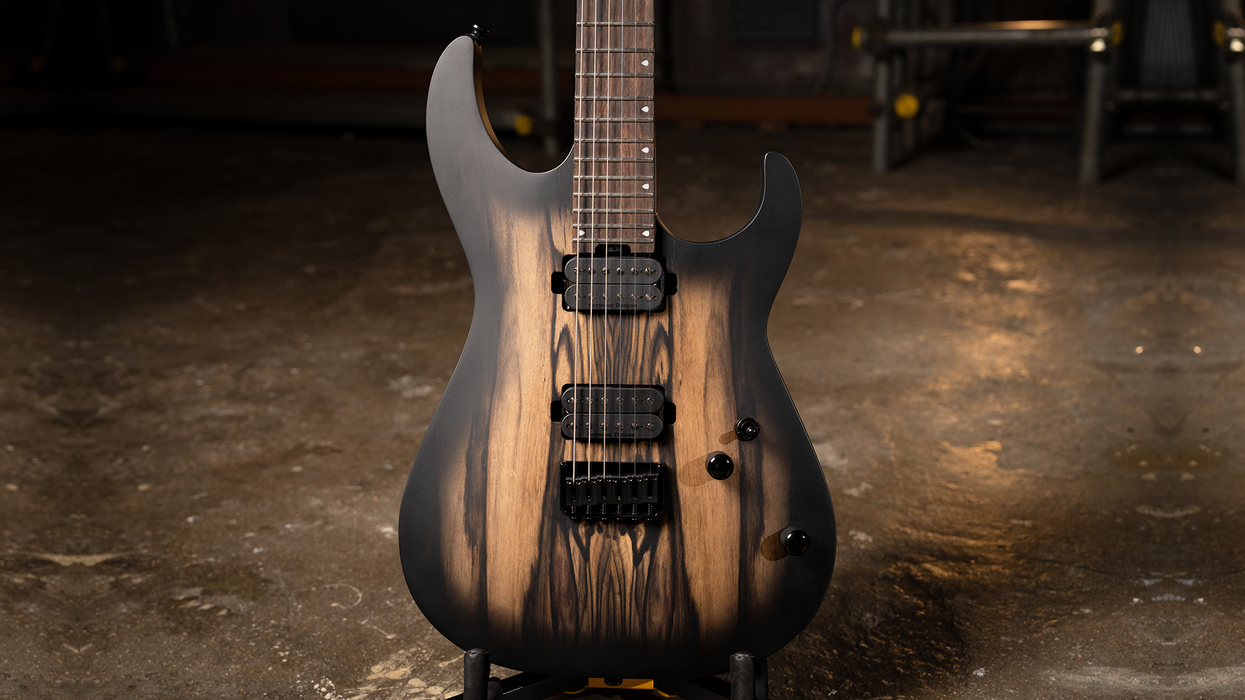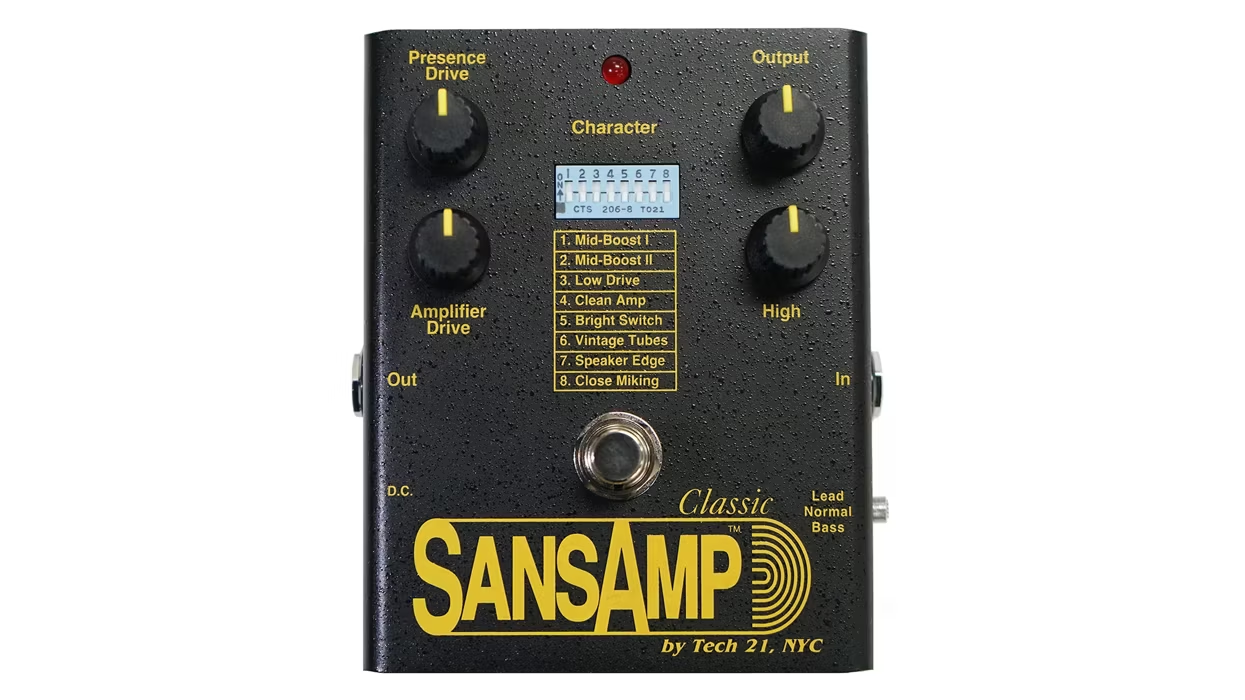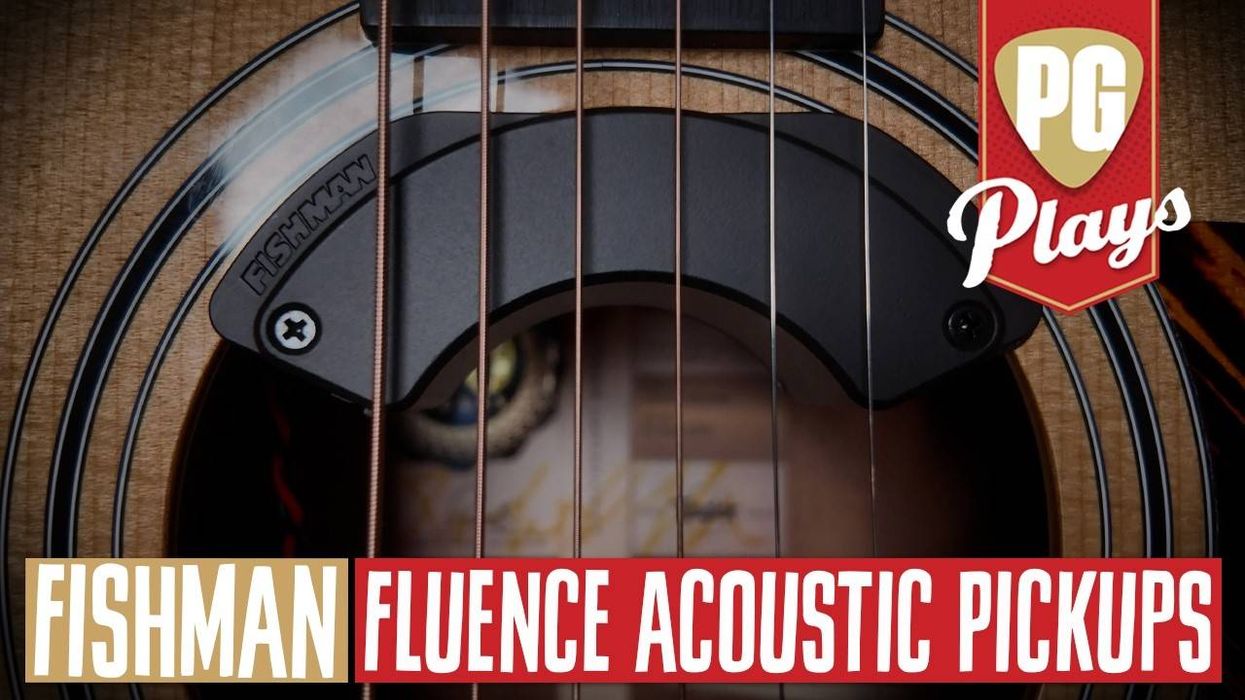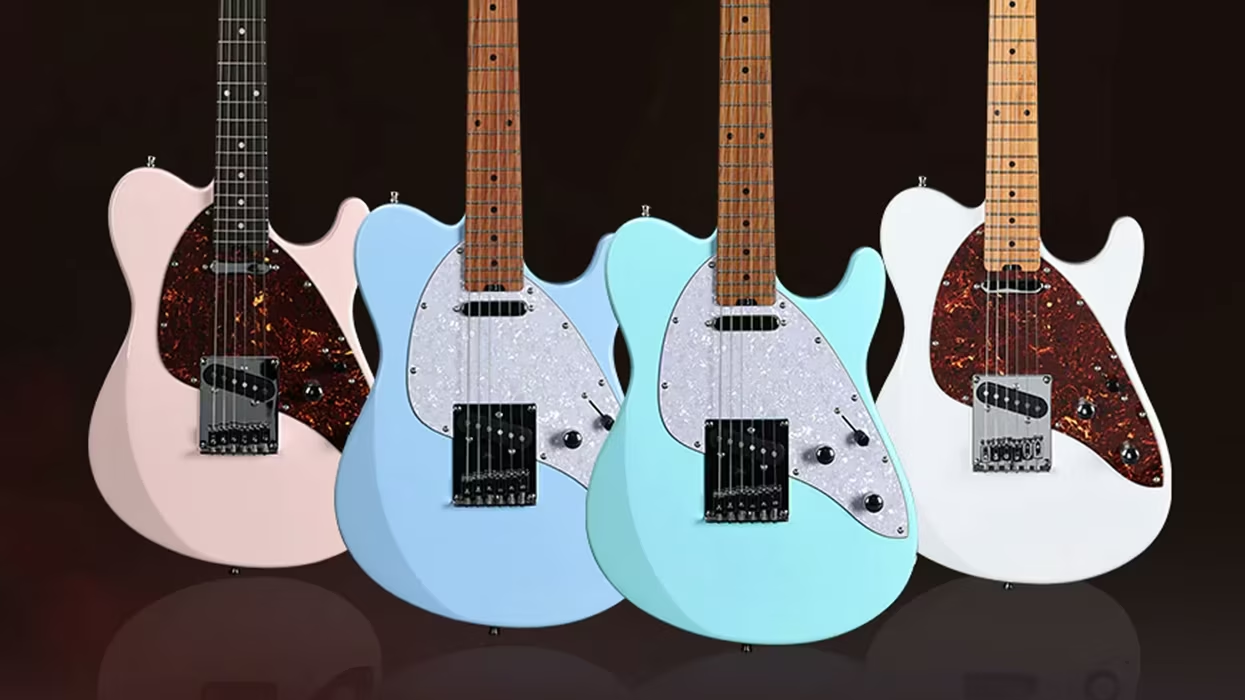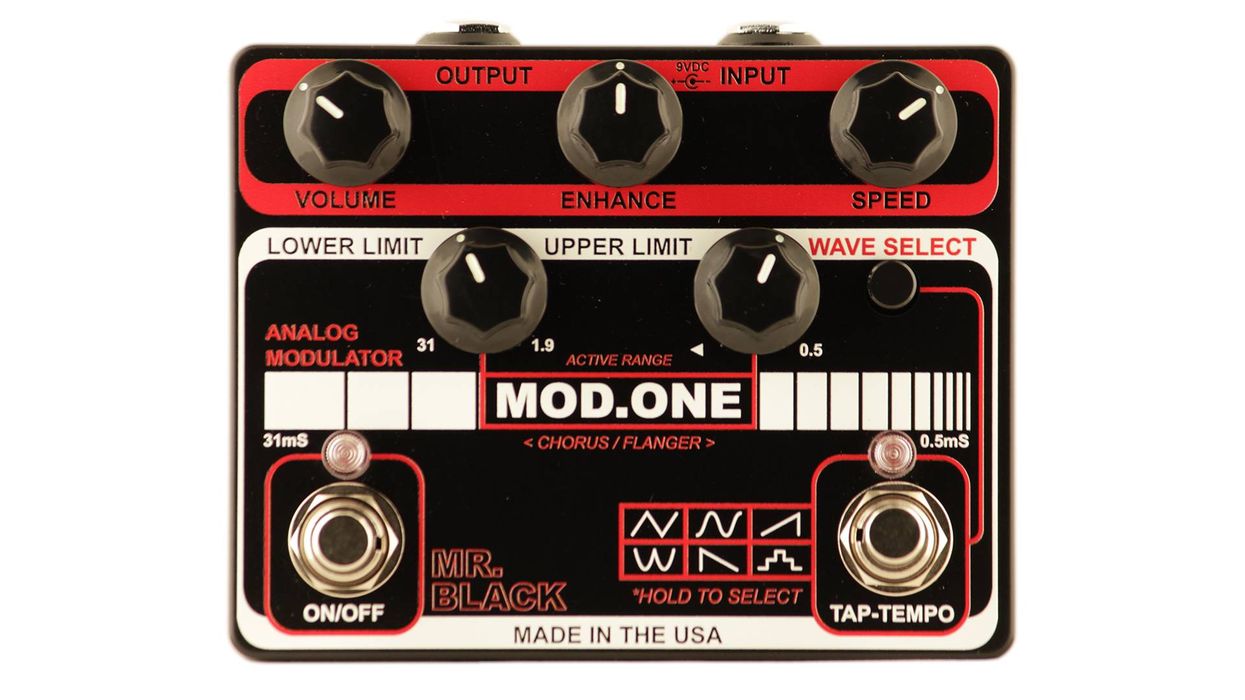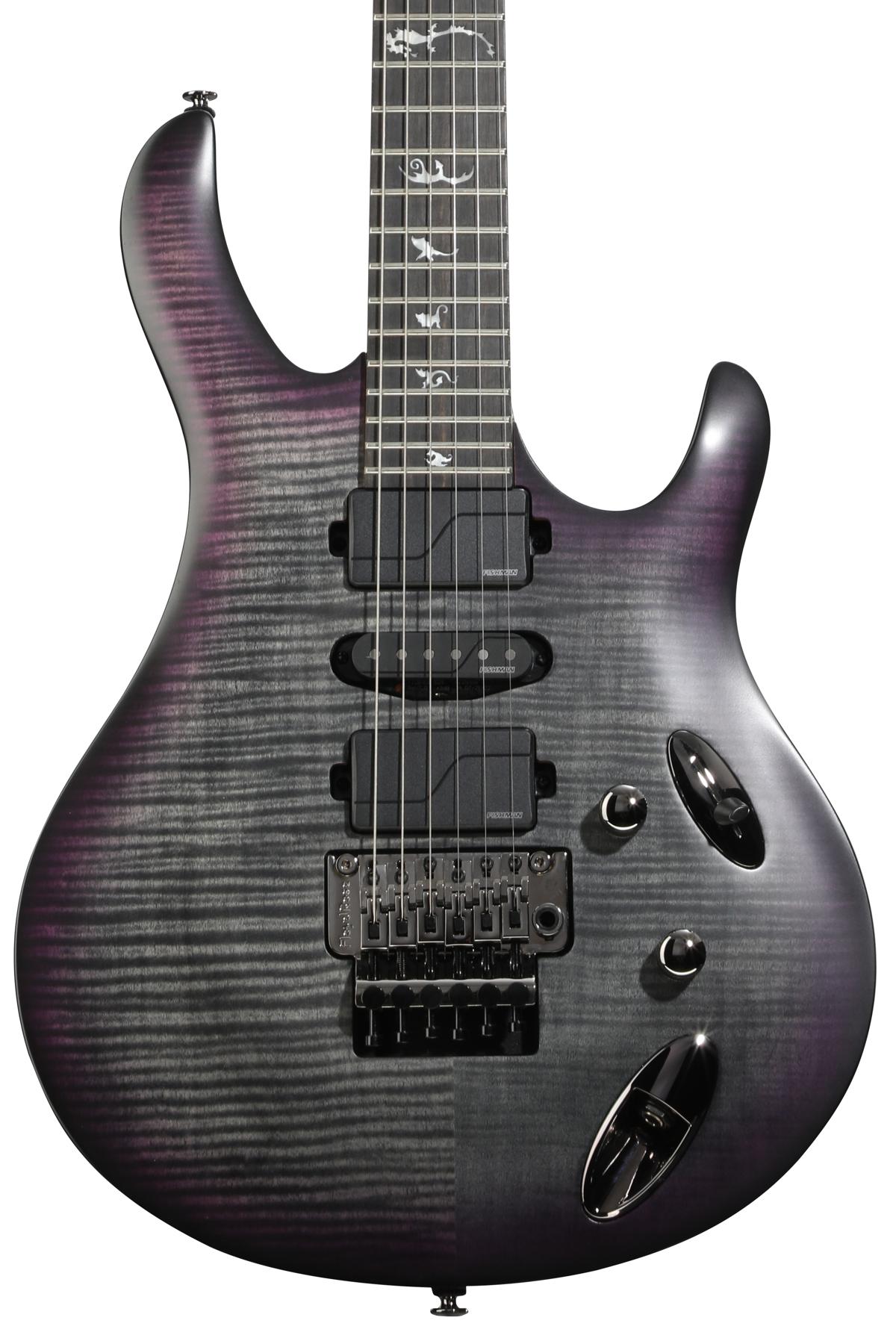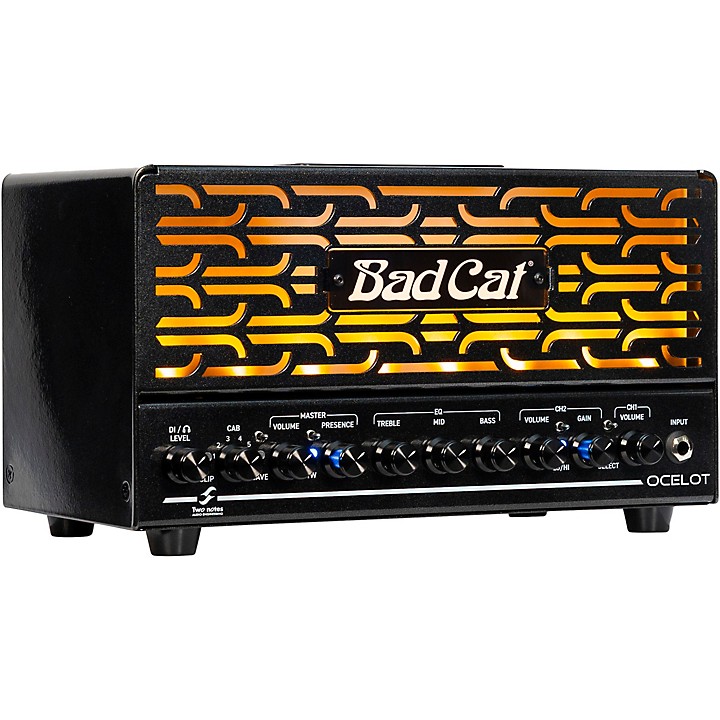Gwendolyn Forrester got her start in lutherie when she found a “crappy” Les Paul copy in a trash heap and kept working on it until she got it to work right. Though essentially self-taught, Forrester’s father had some experience building banjos, so the budding luthier was able to pick his brain and use the shop in the family’s basement.
Forrester has a very unique building style and methodology, drawing inspiration from nature in the surrounding hills of central Tennessee. Her approach to guitar building is to keep her designs and methods as simple as possible, make use of locally harvested timber and salvaged materials, and put the emphasis on the inherent beauty of the wood. Some of the salvaged materials come from old barns, fences, and other structures with weather-worn surfaces, saw marks, and nail holes—giving her instruments their distinctive degree of organic, visual interest. Most every guitar Forrester creates makes use of recycled wood and she has plans to incorporate much more in the future. Up to now, she has only been using recycled wood for the bodies, but is working on ways to incorporate it for necks. “I’m really picky about what I use in necks, and most of the wood I find in barns is pretty funky,” explains Forrester.
Beyond the benefit of the minimal impact on the ecosystem in using salvaged materials, Forrester believes there is often too much emphasis placed on the use of exotic woods. “I don’t believe in tonewood,” says Forrester. “I used to worry about how these guitars would sound, but the results have spoken for themselves. Tropical woods are very different from American woods, and I will concede that they may produce different sounding guitars, but ‘better’ is completely subjective. I sometimes get frustrated by the limited palette I have confined myself to, but ultimately it forces me to get more creative.”
Pricing and Availability
The turnaround time for a typical, custom order
for a Dismal Ax guitar is normally six to eight
weeks. Prices currently run from $1500 to $2800,
but Forrester will be expanding that range in the
near future with a line of semi-hollow, carved-top
instruments with bent sides for upwards of
$3600, as well as some simpler, more affordable
guitars as low as $1000. Forrester builds approximately
15-20 instruments per year, but plans to
double that number soon. Customers are able
to order directly through Dismal Ax, or through
Destroy All Guitars. Guitars are also available
from time to time in various San Francisco Bay
Area shops.
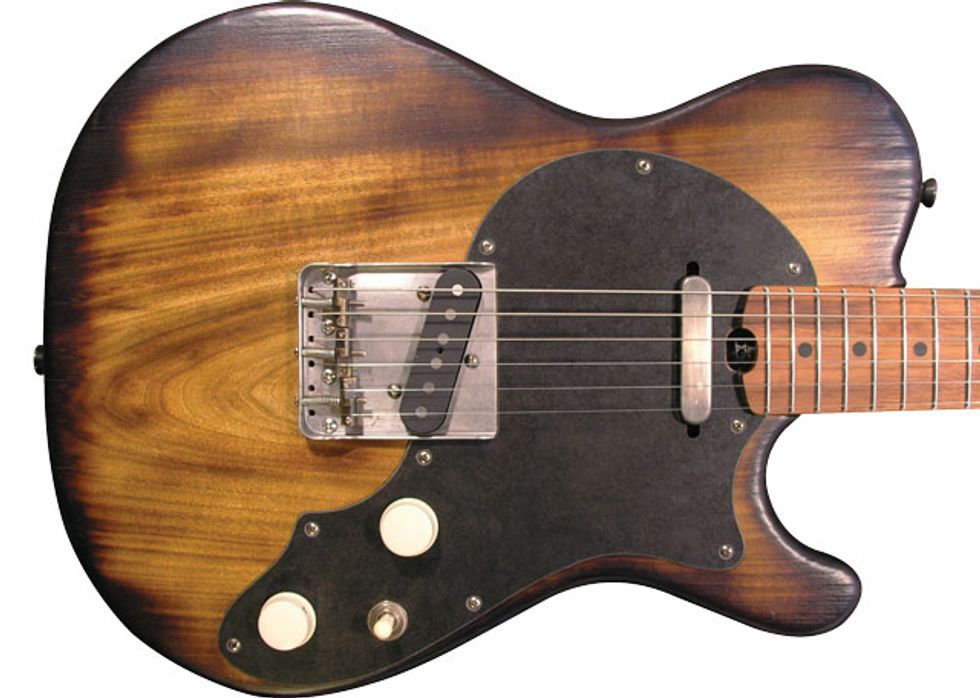
The Muleskinner SC
The Muleskinner SC (single-cutaway) models have a 25.5"
scale, bolt-on neck with 22 frets, an inline headstock, and
choice of a basic slab, rafter, or barn-wood-topped body.
This Muleskinner has a yellow-poplar body, a black-locust
fretboard, and is loaded with Bare Knuckle Blackguard
Flat ’50 pickups. The Tele-style Muleskinner SC models
are available with either TonePros Kluson or Gotoh tuners,
and a black or brown Bakelite pickguard.
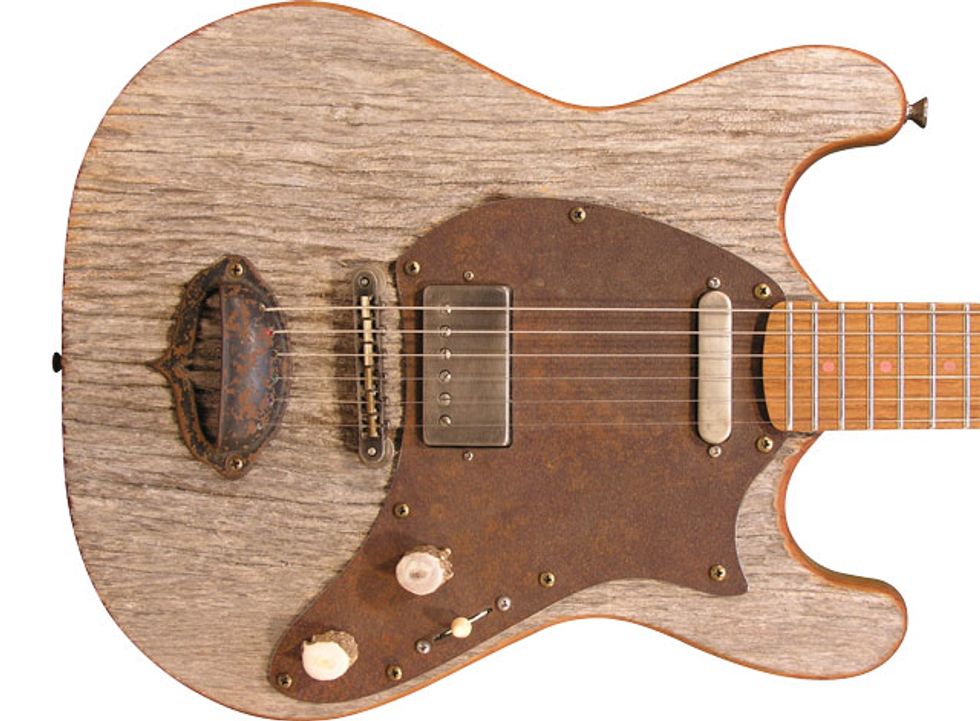
The Muleskinner DC
All guitars in the Muleskinner series are meant to be plain,
simple, utilitarian instruments. The Muleskinner DC (double cutaway)
models are 25"-scale guitars with a solid or laminated
set-neck and angled headstock. The DC model shown
has a weathered-beech, barn-wood top and boasts custom
options including a tailpiece made from a cast-iron drawer
pull, a rusted roof-tin pickguard, and control knobs fashioned
from deer antlers.
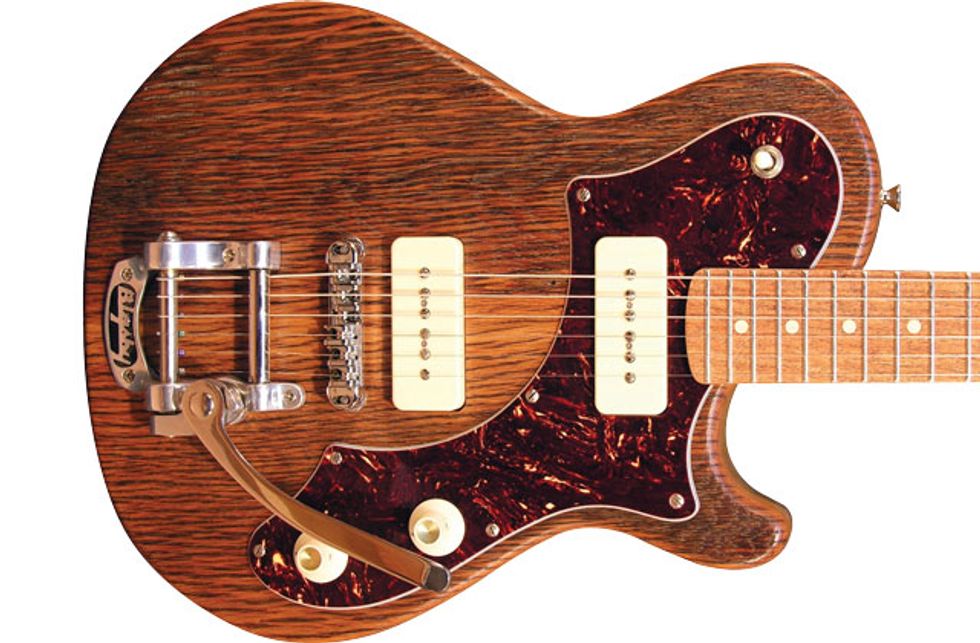
The Barncat
The Barncat is a blend of Forrester’s Barnstormer and Muleskinner
models, and includes an optional Bigsby B5 vibrato.
This particular Barncat utilizes oak barn wood for the top, a
back fashioned from cucumber-tree wood, and has a maple
neck topped with a mesquite fretboard. A Rio Grande Bluesbar/
Jazzbar pickup set, Hipshot Grip-Lock tuners, and a
Wilkinson roller bridge round out the appointments for this 25”
scale, 22-fret guitar.
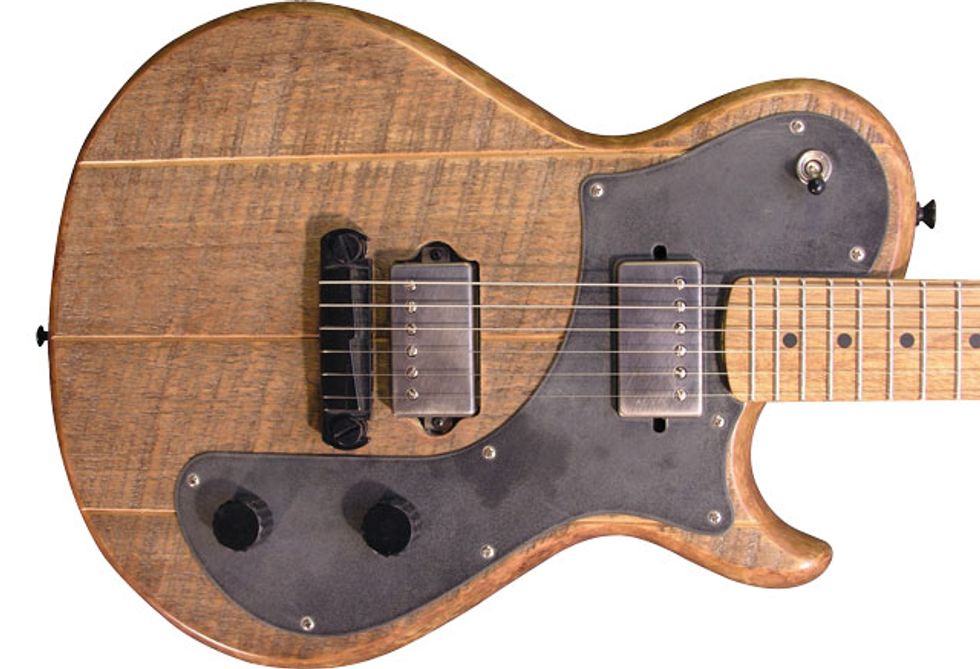
The Barnstormer SC
The Barnstormer SC is Forrester’s main production guitar and
the series features bodies built from sections of 2x4 or 2x6
rafters, which can be hollowed out to reduce weight. The Seymour
Duncan Jazz/JB-equipped model shown is fashioned
from poplar rafters, but beech, oak, maple, tupelo, and elm
are also available as wood options. Original saw marks are left
showing, and lightly sanded to accentuate them. The necks
are either one-piece or laminated, and are attached to the body
with a full-width mortise and tenon joint.
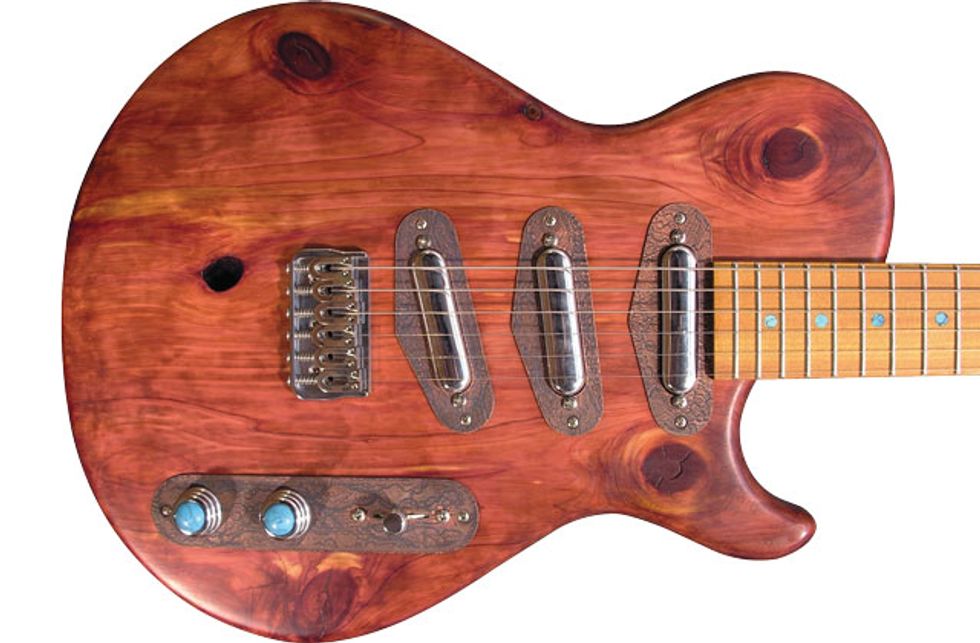
The Redbird
The Redbird started out as a red cedar Tele-style guitar, but
has been redesigned with a look similar to the Barnstormer
SC. The pictured guitar is a single-cutaway version with three
Kent Armstrong single-coils atop embossed-copper pickup
mounts, though the standard Redbird is loaded with a pair of
humbuckers. A primary feature of the Redbird series is the use
of Eastern red cedar—a light, soft wood containing plenty of
knots, sapwood streaks, dry rot, bark inclusions, and other
proudly displayed visual treasures. Forrester donates 25 percent
of the sale of any Redbird guitar to charitable causes.
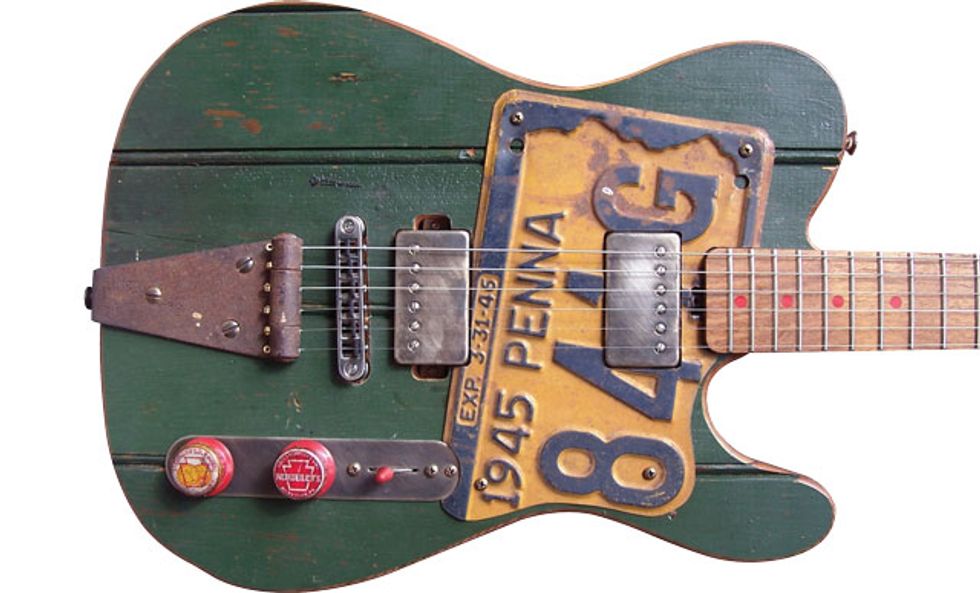
The Road Dog
Primarily using the shape of the Muleskinner series, the
Road Dog guitars are custom-order instruments with the
striking visual feature of a discarded, automobile license
plate for the pickguard. The shown “Bearcaster” is constructed
of salvaged, yellow-pine beadboard, outfi tted with
Allparts humbuckers, and features Daka-Ware knobs topped
with vintage bottle-caps, as well as a tailpiece constructed
from an iron strap-hinge. The 1945 Pennsylvania license
plate represents the year and state of the customer’s birth.







![Rig Rundown: Russian Circles’ Mike Sullivan [2025]](https://www.premierguitar.com/media-library/youtube.jpg?id=62303631&width=1245&height=700&quality=70&coordinates=0%2C0%2C0%2C0)






